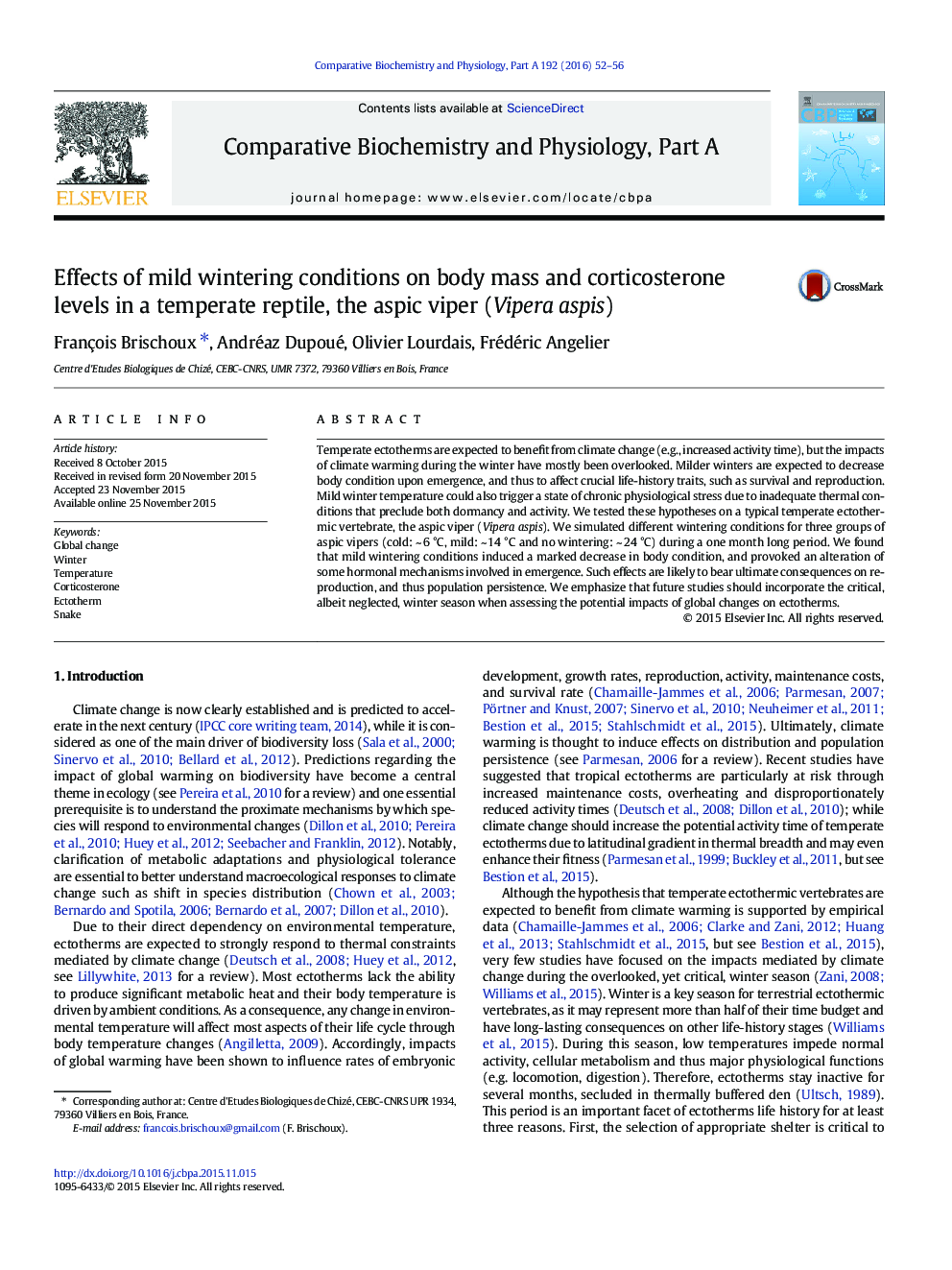| Article ID | Journal | Published Year | Pages | File Type |
|---|---|---|---|---|
| 8318547 | Comparative Biochemistry and Physiology Part A: Molecular & Integrative Physiology | 2016 | 5 Pages |
Abstract
Temperate ectotherms are expected to benefit from climate change (e.g., increased activity time), but the impacts of climate warming during the winter have mostly been overlooked. Milder winters are expected to decrease body condition upon emergence, and thus to affect crucial life-history traits, such as survival and reproduction. Mild winter temperature could also trigger a state of chronic physiological stress due to inadequate thermal conditions that preclude both dormancy and activity. We tested these hypotheses on a typical temperate ectothermic vertebrate, the aspic viper (Vipera aspis). We simulated different wintering conditions for three groups of aspic vipers (cold: ~ 6 °C, mild: ~ 14 °C and no wintering: ~ 24 °C) during a one month long period. We found that mild wintering conditions induced a marked decrease in body condition, and provoked an alteration of some hormonal mechanisms involved in emergence. Such effects are likely to bear ultimate consequences on reproduction, and thus population persistence. We emphasize that future studies should incorporate the critical, albeit neglected, winter season when assessing the potential impacts of global changes on ectotherms.
Related Topics
Life Sciences
Biochemistry, Genetics and Molecular Biology
Biochemistry
Authors
François Brischoux, Andréaz Dupoué, Olivier Lourdais, Frédéric Angelier,
